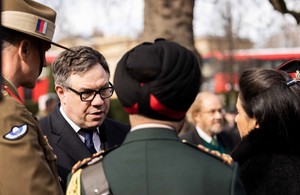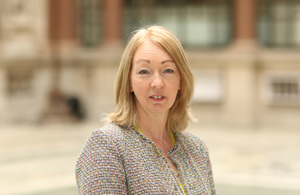- from 4am 18 March no-one entering the UK will need to take tests or complete a passenger locator form
- remaining managed hotel quarantine capacity will be fully stood down from the end of March, making the UK one of the first major economies to end all COVID-19 international travel rules
- contingency plans put in place to manage any future variants of concern (VoCs)
The government will remove the remaining restrictions on international travel for all passengers ahead of the Easter holidays, the Transport Secretary announced today (14 March 2022).
As one of the first major economies to remove all its remaining COVID-19 travel restrictions, this is a landmark moment for passengers and the travel and aviation sector.
From 4am Friday 18 March, all COVID-19 travel restrictions will be lifted, including the passenger locator form (PLF) for arrivals into UK, as well as all tests for passengers who do not qualify as vaccinated. This change, therefore, removes the need for unvaccinated passengers to take a pre-departure test and a day 2 post arrival test.
This step reflects the decisions taken by the government, as set out in the Living with COVID plan, and the success of the UK’s vaccine and booster rollout, with 86% of the population having received a second dose and 67% of the population with a booster or third dose.
Transport Secretary Grant Shapps said:
The UK is leading the world in removing all remaining COVID-19 travel restrictions, and today’s announcement is a testament to the hard work everyone in this country has put in place to roll out the vaccine and protect each other.
I said we wouldn’t keep travel measures in place for any longer than necessary, which we’re delivering on today – providing more welcome news and greater freedom for travellers ahead of the Easter holidays.
I look forward to continuing to work with the travel sector and partners around the world to keep international travel moving.
Health and Social Care Secretary Sajid Javid said:
As we learn to live with COVID-19, we’re taking further steps to open up international travel once again ahead of the Easter holidays.
We will continue monitoring and tracking potential new variants and keep a reserve of measures that can be rapidly deployed if needed to keep us safe.
We can remove these final restrictions thanks to the incredible success of our vaccination programme, which has seen more than 8 out of 10 adults across the UK boosted.
To ensure the protection of public health, the government will maintain a range of contingency measures in reserve, which would enable it to take swift and proportionate action to delay any future harmful variants of COVID-19 entering the UK should the need arise.
In future, the government’s default approach will be to use the least stringent measures, if appropriate, to minimise the impact on travel as far as possible – given the high personal, economic and international costs border measures can have – and the contingency measures will only be implemented in extreme circumstances.
Given the current state of the pandemic and a move towards global travel volumes returning to normal, the remaining managed hotel quarantine capacity will be fully stood down from the end of March.
Tim Alderslade, Chief Executive of Airlines UK, said:
Today’s announcement sends a clear message to the world – the UK travel sector is back. With travellers returning to the UK no longer burdened by unnecessary forms and testing requirements, we can now look forward to the return to pre-COVID normality throughout the travel experience.
We’re grateful for the timing of the announcement as we prepare to welcome back passengers this Easter and summer, for which we know there is huge pent-up demand, and for the UK’s leadership in being the first major aviation market to remove all remaining restrictions. The time to return to the skies – to enjoy all that makes aviation and international travel great, for families and businesses – is now.
Karen Dee, Chief Executive of Airport Operators Association, said:
A return to restriction-free travel is good news for passengers and should allow for aviation to take significant steps towards recovery. People should feel encouraged to book their long-awaited holidays, trips to see relatives and friends abroad they haven’t seen for a long time and travel to rekindle business ties with other countries.
Steve Heapy, CEO of Jet2.com and Jet2holidays, said:
Two years after the onset of the COVID-19 pandemic, today’s announcement marks international travel finally returning to normal. The removal of passenger locator forms and testing regimes means that customers can at long last enjoy hassle-free travel, just like they did before the pandemic.
With Easter just around the corner and summer fast approaching, this announcement comes at the perfect time. Since restrictions started to be eased at the beginning of the year, we have experienced strong, sustained demand and the complete removal of forms and requirements will boost that demand even further.
Additionally, UKHSA will continue to closely monitor the prevalence and spread of harmful variants and keep international data under review.
While there will be no border health measures on arrival in the UK from 18 March, other countries are at different stages in the pandemic and many still require passengers to comply with requirements.
Travellers should continue to check GOV.UK travel guidance including Foreign, Commonwealth & Development Office (FCDO) travel advice to keep up to date with other countries’ entry requirements.
Passengers are also encouraged to carefully check booking conditions for flexibility in amending bookings prior to buying tickets. People will continue to be able to access their vaccine and recovery records through the NHS COVID Pass to use when travelling overseas.


